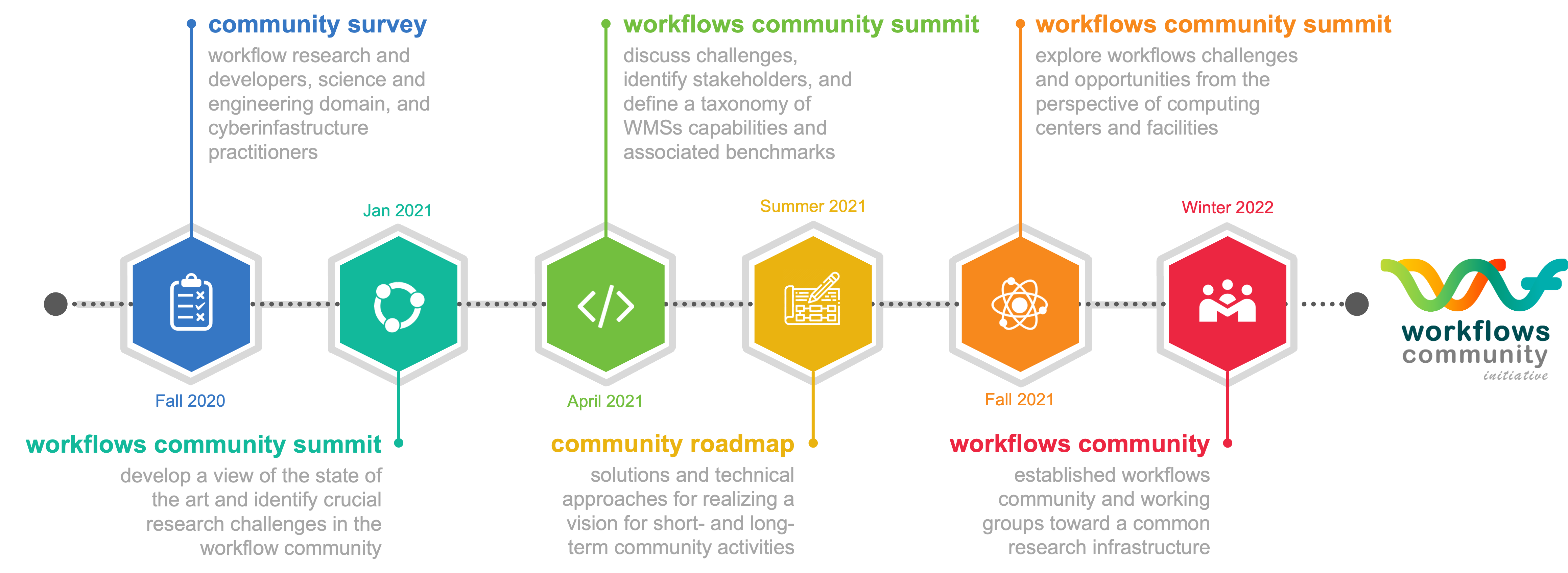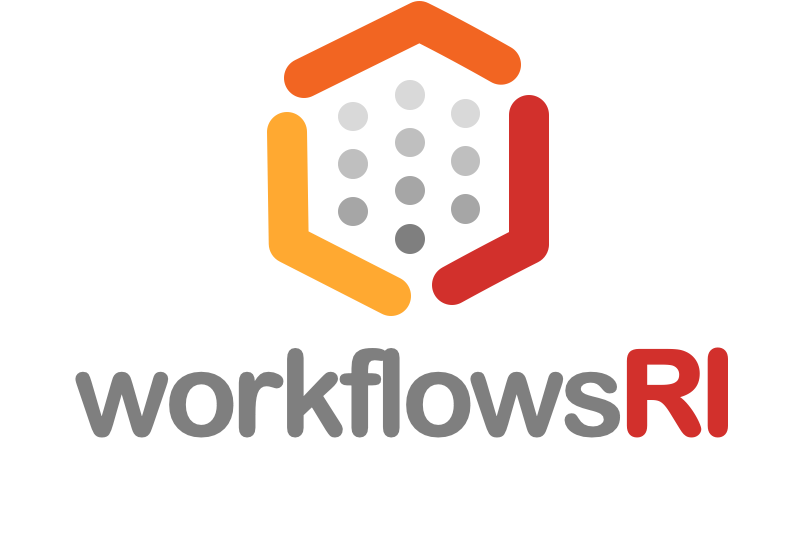
Building upon the success of workflowsRI, we are launching a new Workflows Community Initiative (WCI) to focus on bringing together community resources and capabilities for workflow users, developers, and researchers, as well as facilitating discussions and interactions with computing facilities. WCI arises as a community-centered effort for gathering and promoting long-standing and recent community-focused efforts (e.g., workflowsRI, ExaWorks, ELIXIR, among others).
Project Overview
Research Paper
A Community Roadmap for Scientific Workflows Research and DevelopmentFerreira da Silva, R., Casanova, H., Chard, K., Altintas, I., Badia, R. M., Balis, B., Coleman, T., Coppens, F., Di Natale, F., Enders, B., Fahringer, T., Filgueira, R., Fursin, G., Garijo, D., Goble, C., Howell, D., Jha, S., Katz, D. S., Laney, D., … Wolf, M. (2021) 2021 IEEE Workshop on Workflows in Support of Large-Scale Science (WORKS), 81–90. https://doi.org/10.1109/WORKS54523.2021.00016
Scientific workflows are used almost universally across scientific domains and have underpinned some of the most significant discoveries of the past several decades. Workflow management systems (WMSs) provide abstraction and automation which enable a broad range of researchers to easily define sophisticated computational processes and to then execute them efficiently on parallel and distributed computing systems. As a result of widespread workflow adoption, the workflows research and development community has grown: there are now hundreds of independent WMSs, thousands of researchers and developers, and a rapidly growing corpus of workflows research publications. This progress has occurred in spite of the absence of a community research infrastructure, which has had wide-ranging consequences.
During this planning project, we conducted a series of events called "Workflows Community Summits" (January, April, and November 2021). The overarching goal of these summits was to (i) develop a coherent view of the state of the art, (ii) identify key research challenges, (iii) articulate a vision for potential community activities, and (iv) explore technical approaches for realizing (part of) this vision. The summits were attended by more than 130 participants, including international lead researchers and developers, from distinct workflow systems and user communities (over 30+ workflow systems were represented). The outcomes of the three Workflows Community Summits have been compiled and published in three technical reports and a research paper.
